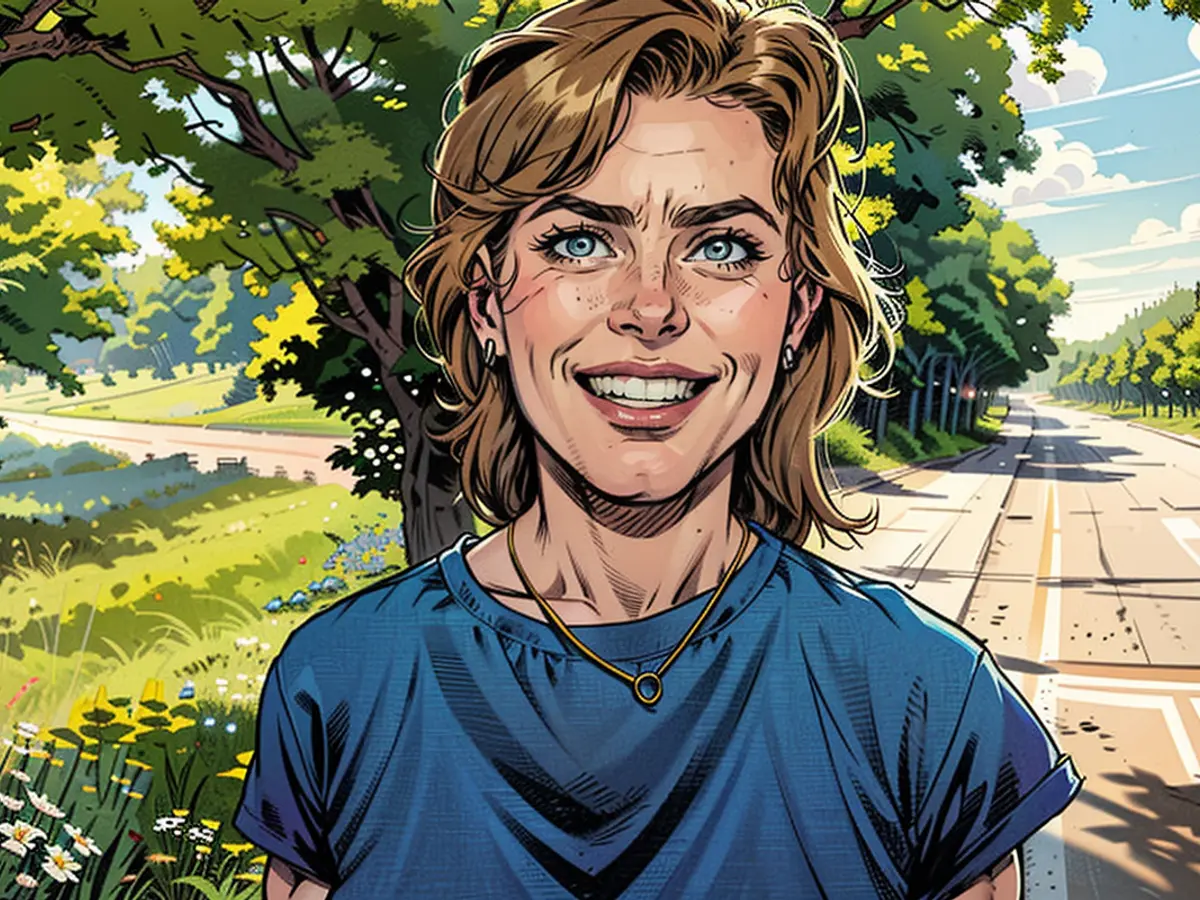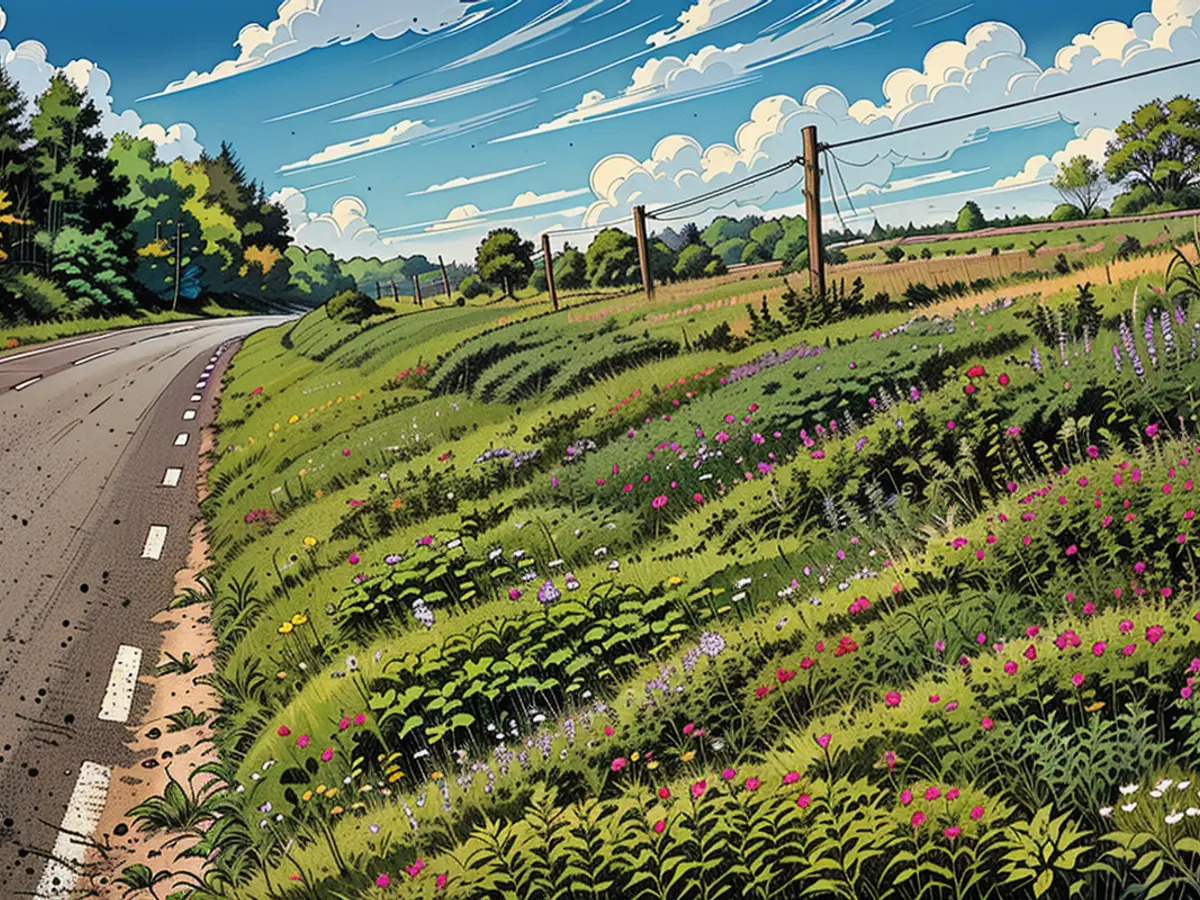Could roadsides serve as bee saviors?
When the term biodiversity is brought up, many individuals envision settings like tropical rainforests or coral reefs. Urban areas such as city streets rarely come to mind. Yet, they play a significant role in biodiversity, although it's a complex one.
During her summer of 2021, Svenja Horstmann, a 30-year-old German PhD candidate at Uppsala University, spent her time in Sweden. Her research focused on the impact of traffic on insects, often venturing onto roadsides with an insect net, capturing bees and butterflies.
For a three-month period, Horstmann, along with her assistant Sophie Müller, meticulously collected and identified various insect species at 40 different roads. The project was funded by the Swedish Transport Administration, responsible for long-term transportation route planning and maintenance.
Many of the insect species now found near roadsides were once native to near-natural grasslands that covered vast regions of Europe. These areas were utilized for livestock grazing or winter feed. "Over millennia, these near-natural grasslands have evolved into one of the most biodiverse habitats in the world," explains Horstmann. "They host numerous plants that provide abundant pollen and nectar for bees and butterflies, and habitat for other insects. The soil, bushes, and plant stems also offer numerous nesting opportunities."
However, these biodiverse grasslands are becoming increasingly scarce due to agricultural intensification and increased forestry in Sweden. Some areas have even reverted to overgrowth because they are no longer used for grazing. This is where roadside verges come in, as they are only mowed once or twice a year for safety reasons, benefiting many plants and insects.
No easy solutions
"In recent years, roadside verges have been increasingly recognized as a potential substitute habitat for insects suffering from the loss of near-natural grasslands," says the German PhD candidate. With approximately seven million kilometers of roads in Europe, each featuring an average of four meters of verge, this creates a vast green space that could potentially provide habitat for these species.
However, Horstmann's research shows that maintaining biodiversity rarely comes with simple or quick solutions. "In Sweden, some roadside verges are deliberately mowed only once instead of twice for biodiversity reasons, resulting in more flowering plants in the summer. The more flowering plants there are, the more bees and butterflies there are along the road. But this doesn't mean that we should always mow only once and then later."
This could also have other implications. For instance, it might lead to grasses having better growing conditions. However, grasses provide few resources for bees and butterflies, so the later mowing could potentially be detrimental to insects in the long run. Additionally, grass strips along roads are subject to various traffic-related pressures, such as noise, exhaust fumes, turbulence, and chemicals used for ice removal.
Horstmann's findings showed that heavy traffic has a significant impact on narrow roadside strips. With only two to three meters of width and high traffic volume, she found significantly fewer bees and butterflies, as well as fewer species overall, compared to wider strips with both high and low traffic. "Wide strips and low traffic is ideal."
Potential ecological trap?
The effect of "replacement grasslands" extends into the surroundings. To test the range of this effect, Horstmann planted wild strawberry plants at 20 and 100 meters from the roadside. "We observed how many pollinators landed on the strawberry flowers and likely pollinated them." Later, they harvested the ripe strawberries for examination. "The interesting thing about strawberries is the small achenes on the outside. Those are the actual true fruits of the strawberry. If they're close together and maybe a bit green, with no flesh in between, that's because the flowers weren't properly pollinated. While strawberries can be wind-pollinated, insect pollination leads to better yields." This way, Horstmann demonstrated that roadside strips with more flowering plants attracted more insects to pollinate strawberries up to 100 meters away.
Horstmann's findings have been incorporated into several scientific publications and recommendations for the Swedish Transport Administration. "I will recommend mowing in a way that promotes biodiversity, especially on roadside strips or roads with less traffic. But maybe not on roads with heavy traffic." Currently, there's an experiment where the cut grass is removed instead of being left. "Then it breaks down, and all the nutrients go back into the soil. Nutrient-poor soils are better for many flowering plants that would otherwise occur in natural grasslands, and thus for bees and butterflies."
In a few years, the guideline could be that roads with less traffic are mowed only once a year and the cuttings are removed. However, this is only if roadside strips don't turn out to be ecological traps for pollinators. "A wild bee looking for a nesting habitat or nectar and pollen resources might find the roadside attractive," explains Horstmann. "However, breeding there might lead to higher mortality rates due to traffic. In the worst case, this could lead to many new species arriving but then disappearing because they suffer able to survive in this environment or locally go extinct."
Horstmann's results, after three years of research along the roadside, are preliminary. She hopes for further studies, perhaps in other countries, to corroborate her data. For the ecologist, who aims to complete her PhD by the end of the year, the diversity of species right at her doorstep underscores the importance of nature. "It's all so complex. And I think we shouldn't always assume that we understand everything. And that makes me appreciate it all the more."
The study conducted by Svenja Horstmann and Sophie Müller revealed that roadside verges, often mowed only once due to safety reasons, can provide valuable habitat for insects, such as bees and butterflies, in areas where near-natural grasslands have become scarce. However, maintaining biodiversity in these roadside areas is not a simple or quick fix, as Horstmann's research also showed that mowing frequency and traffic volume both impact the abundance and diversity of insects in these areas.








